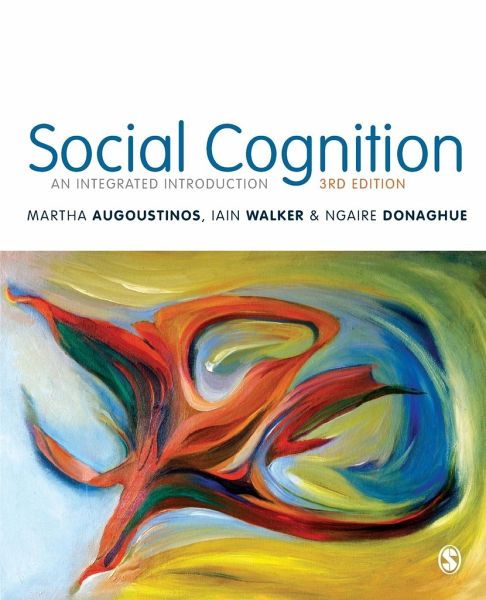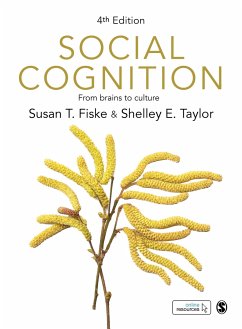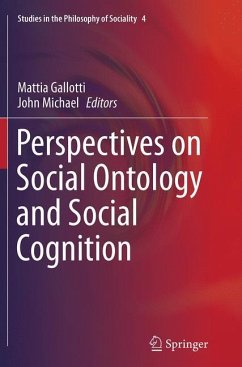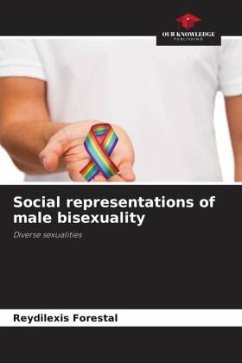
Social Cognition
An Integrated Introduction
Versandkostenfrei!
Versandfertig in 6-10 Tagen
40,99 €
inkl. MwSt.
Weitere Ausgaben:

PAYBACK Punkte
20 °P sammeln!
The Third Edition of this much celebrated textbook continues to focus on the four major and influential perspectives in contemporary social psychology - social cognition, social identity, social representations, and discursive psychology. A foundational chapter presenting an account of these perspectives is then followed by topic-based chapters from the point of view of each perspective in turn, discussing commonalities and divergences across each of them.Key Features of the Third Edition:-Now includes coverage of the social neuroscience paradigm and research on implicit social cognition-Updat...
The Third Edition of this much celebrated textbook continues to focus on the four major and influential perspectives in contemporary social psychology - social cognition, social identity, social representations, and discursive psychology. A foundational chapter presenting an account of these perspectives is then followed by topic-based chapters from the point of view of each perspective in turn, discussing commonalities and divergences across each of them.
Key Features of the Third Edition:
-Now includes coverage of the social neuroscience paradigm and research on implicit social cognition
-Updated pedagogical features and visual material
-An extended conclusion covers the ways in which the different approaches of the field intersect as well as a general discussion of the direction in which the field is moving.
Social Cognition: An Integrated Introduction is an integrative, holistic textbook that will enhance the reader's understanding of social cognition and of each of the topical issues considered. It remains a key textbook for psychology students, particularly those on courses in social psychology and social cognition.
Key Features of the Third Edition:
-Now includes coverage of the social neuroscience paradigm and research on implicit social cognition
-Updated pedagogical features and visual material
-An extended conclusion covers the ways in which the different approaches of the field intersect as well as a general discussion of the direction in which the field is moving.
Social Cognition: An Integrated Introduction is an integrative, holistic textbook that will enhance the reader's understanding of social cognition and of each of the topical issues considered. It remains a key textbook for psychology students, particularly those on courses in social psychology and social cognition.














